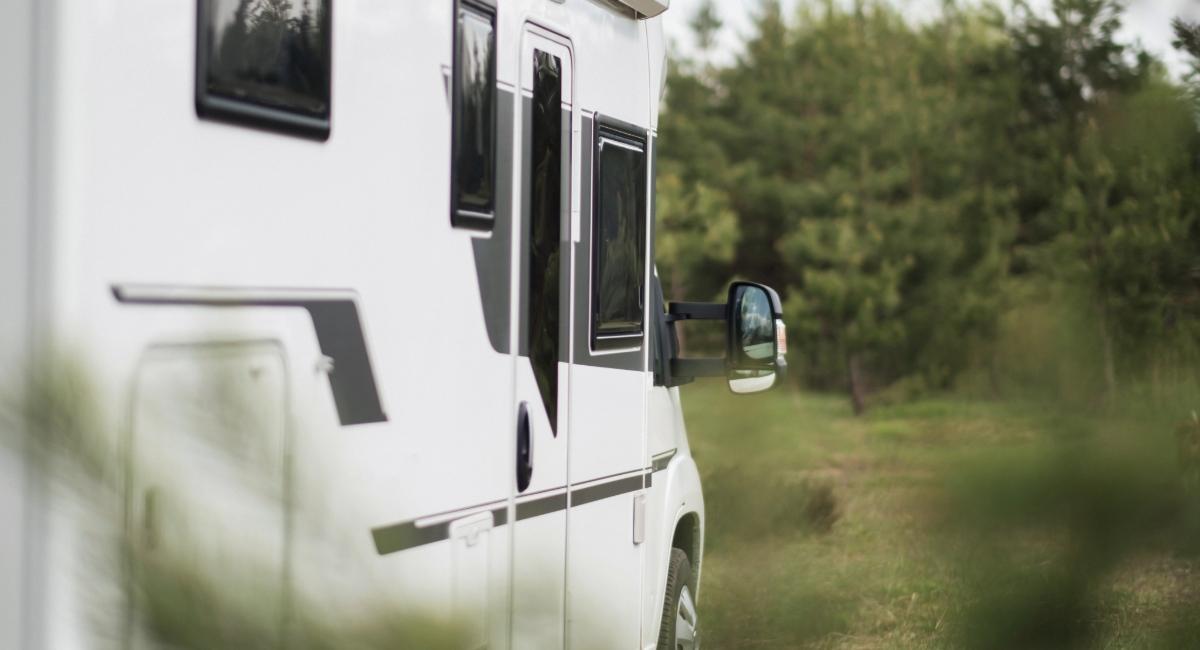Jul 15, 2021
Will My RV Insurance Go Up If I File a Claim? What You Need to Know in 2025
Will My RV Insurance Go Up If I File a Claim? What You Need to Know in 2025
Filing a claim doesn’t automatically mean your RV insurance premium will go up. Read all about the ins and outs here.
Common questions
Blog Post
Education

TL;DR: What You Need to Know
Yes, filing an RV insurance claim can increase your premiums, potentially by up to 50%, depending on the type of claim, your insurer, and other factors. At-fault accidents typically trigger the biggest rate hikes, while comprehensive claims (weather, theft) may cause smaller increases. Your driving history, claim frequency, and insurer policies all play a role. However, many RV insurers now offer accident forgiveness programs that protect your rates after your first claim.
At Roamly, we believe in transparent, traveler-first rv insurance that won't penalize you for life happening on the road. The good news? Rate increases usually last only 3-5 years, and the right insurer will work with you to find coverage that fits your journey.
How Does Filing an RV Insurance Claim Affect My Premiums?
Filing a claim typically increases RV insurance premiums by 20-50%, depending on the type and severity of the incident.
We get it, nobody wants to think about their insurance going up after they've already dealt with RV damage or an accident. But here's the straight talk: insurance companies may raise premiums by as much as 20–50% following a claim, with increases lasting up to three years. The amount depends on the specifics of the incident, your fault, and your claims history.
According to industry data, drivers with a history of motor vehicle insurance claims will typically pay more for RV insurance. That's because insurers see you as a higher risk, even if the incident wasn't entirely your fault.
But don't let that scare you away from filing legitimate claims. Whether you need basic liability coverage or comprehensive full-time RV insurance, your RV insurance is there to protect you, and trying to handle major repairs out-of-pocket can cost way more than any premium increase.
What Types of RV Claims Impact Insurance Rates the Most?
At-fault collisions cause the largest rate increases, while comprehensive claims typically have smaller impacts on your premiums. Not all claims are created equal when it comes to rate increases, so we’ve broken them down for you:
At-Fault Accidents
These hit your wallet the hardest. At-fault accidents will almost always raise your insurance rate, with some states seeing increases as high as 63%. If you rear-end someone at a traffic light or cause a multi-vehicle accident, expect your rates to jump significantly.
Comprehensive Claims
Weather damage, theft, vandalism, or hitting a deer fall into this category. While comprehensive claims might increase your rate depending on your insurer and state, the increases are typically smaller than collision claims. Insurance companies understand that hailstorms and break-ins aren't really under your control.
Not-At-Fault Accidents
Here's where it gets frustrating: even accidents you didn't cause can increase your rate in states that allow it, as insurers have data showing some drivers have a propensity for not-at-fault accidents. It's not fair, but it's reality in many states. However, not all insurers raise premiums for not-at-fault accidents, and some states prohibit using these claims in rate calculations. Always check your insurer’s policy and your state's insurance regulations.
How Long Will My RV Insurance Rates Stay High After a Claim?

Most insurance companies look back 3-5 years when calculating your rates, so claim-related increases typically fade within that timeframe.
The good news is that rate increases aren't permanent. Most insurance companies will typically only look at your most recent history, which could range anywhere from three to ten years depending on your insurer.
Generally, when you make a claim against your insurance policy due to an incident that is primarily your fault, increases stay on your premium for three years following the claim. After that, you're back to clean-slate pricing—assuming you don't have any new incidents.
What is Accident Forgiveness?
Accident forgiveness programs protect your rates from increases after certain types of claims, and many RV insurers now offer them automatically.
This is where things get interesting for RV owners. Many insurers now offer accident forgiveness programs that protect your rates from increases after certain claims. At Roamly, we understand that life happens on the road, which is why we've built protections into our policies to help keep your rates stable when the unexpected occurs.
Here's how accident forgiveness typically works:
- Small accident forgiveness: Usually covers your first claim under a certain dollar amount
- Large accident forgiveness: Protects against rate increases for bigger claims after you've been claim-free for several years
- Claim-free discounts: Some insurers reduce your deductible for every claim-free period
How Can I Minimize Rate Increases After Filing a Claim?
Shop around, maintain accident forgiveness coverage, and consider whether small claims are worth filing given your deductible.
Nobody likes premium surprises, but there are ways to soften the blow:
Before You File
Before you file a claim, find out how much your deductible is and get repair estimates. If the cost of repairs is about the same or less than your deductible, you may decide it's not worth filing a claim. Understanding the different types of RV insurance plans can also help you make informed decisions about coverage limits and deductibles.
After You File
- Review your coverage: Insurance companies all have different views of risk, so it's worth discussing your policy with your agent to understand how your rates are calculated. The Insurance Information Institute provides helpful consumer education about how insurance companies determine rates and coverage decisions
- Ask about discounts you might have lost: You may qualify for new ones even after a claim
- Consider raising your deductible: Higher deductibles mean lower premiums
Insurance pricing and claim impacts vary by state law and insurer policy, so it’s essential to consult your provider and review policy details before and after filing.
Special note for RV renters: If you're considering renting out your RV through platforms like Outdoorsy, make sure your insurer allows it. Traditional insurers often deny claims related to rentals, but specialized RV insurance for rental owners can protect both your personal use and rental activities.
What Should I Know About the RV Claims Process?
Document everything thoroughly, contact your insurer immediately, and be prepared for the process to take 1-3 weeks depending on complexity.
Here's your game plan when something goes wrong:
Immediate Steps
- Safety first: Make sure everyone's okay
- Document everything: Take photos of the damage to your RV, the surrounding area, and any other vehicles or objects that were involved
- Call your insurer: Don't wait, delays can hurt your case
The Claims Process
A claims representative specially trained in handling RV and travel trailer insurance claims will contact you to explain everything your policy covers and guide you through the process. They understand RV repairs are different from regular car repairs.
- Claims representation: Once you report your claim, you'll be assigned a claims representative with RV-specific expertise. They will explain your policy coverage and guide you through next steps, including inspections and repairs
- Inspections and estimates: An adjuster or appraiser will often review the damage and provide repair estimates. Some insurance policies allow you to use a repair shop of your choice; others have preferred shops
- Repairs: Depending on the damage, repairs may be scheduled promptly if your RV is undrivable, though wait times may vary based on parts and labor availability
Most RV insurance claims are being processed in approximately 2–6 weeks in 2025, with straightforward cases sometimes wrapping up within 7–10 days and more complex claims (especially those requiring parts, special repairs, or total loss settlements), taking longer. Staying in close contact with your insurer and providing thorough documentation can help expedite your claim.
Prevention tip: Many accidents can be avoided through proper RV maintenance and safety practices. The RV Industry Association sets comprehensive safety standards for RV construction and provides educational resources about safe RV operation.
Ready to Hit the Road with Confidence?
Don't let fear of rate increases keep you from getting the coverage you need. Get a quote from Roamly today and discover RV insurance that's built for travelers, not penalties.
Unlike traditional insurers, we understand that your RV isn't just a vehicle, it's your ticket to adventure. Our coverage is designed to protect both weekend warriors and full-time nomads, with transparent policies that won't leave you stranded when you need us most.
Plus, if you're interested in renting out your RV on platforms like Outdoorsy, Roamly's policies actually allow it, something most traditional insurers won't cover.
If repairs cost less than your deductible plus potential rate increases, it might make sense to pay out-of-pocket. Run the numbers based on your specific situation.
According to industry data, RV insurance can range from $300-$1,500+ annually depending on your RV type, coverage level, and location. After a claim, rates can increase by 20-50% higher than baseline premiums, which is why accident forgiveness programs can provide valuable protection.
RV claims often involve more complex repairs and higher values. Many insurers have specialized RV adjusters who understand the unique aspects of motorhome and travel trailer repairs.
It might, but usually less than collision claims. Many insurers understand that weather-related incidents are outside your control and may not penalize you harshly (or at all), for a single comprehensive claim. However, repeated claims or high-cost payouts can still affect your rates, depending on the provider.
Roamly Insurance Group, LLC ("Roamly") is a licensed general agent for affiliated and non-affiliated insurance companies. Roamly is licensed as an agency in all states in which products are offered. Roamly license numbers. Availability and qualification for coverage, terms, rates, and discounts may vary by jurisdiction. We do not in any way imply that the materials on the site or products are available in jurisdictions in which we are not licensed to do business or that we are soliciting business in any such jurisdiction. Coverage under your insurance policy is subject to the terms and conditions of that policy and is ultimately the decision of the buyer.
Policies provided by Roamly are underwritten by Spinnaker Insurance Company, Progressive Insurance Company, Safeco Insurance Company, Foremost Insurance Company, National General Insurance, Mobilitas Insurance Company, and others.
Connect
© 2026 Roamly All rights reserved.
